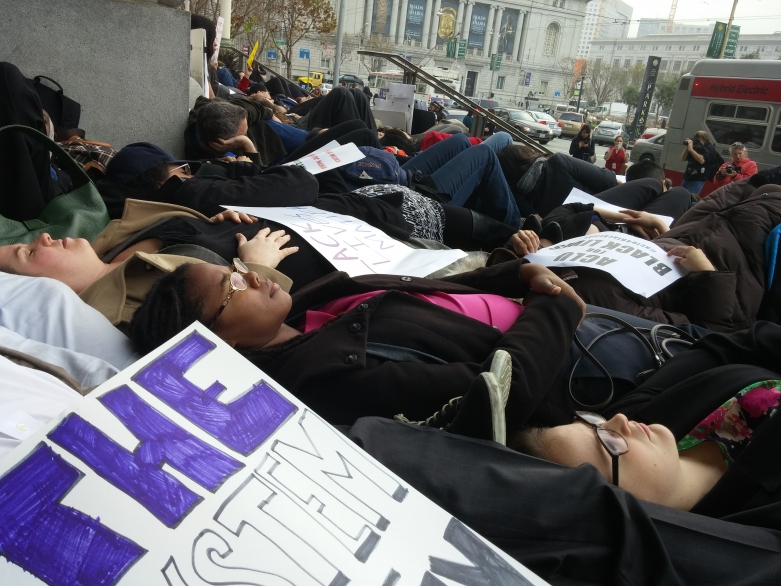Lawyers for Black Lives Matter
Page Media

A week ago I was riding on a crowded BART train when I heard someone say, “You’re young, Caucasian, and wealthy. Nothing can stand in your way.” I immediately looked up and saw three white guys, probably in their early twenties, dressed casually in jeans and t-shirts, smiling and talking to one other.
The comment failed to elicit a response. It was then that I realized I was the only black person in a car primarily filled with white passengers. Somewhere between the Embarcadero and Macarthur stops, the car had become more homogenous as we headed north toward Berkeley. I wondered if anyone else heard what I heard. I wondered if they were joking or just trying to be provocative. I wondered how that comment would have been received a few passenger stops ago.
But my initial offense at hearing such a statement dulled as I began to realize that what I’d heard wasn’t provocative at all. We all know that white lives matter. Rather, the provocative statement is to say that black lives matter.
Black lives matter
It is provocative to say that black lives matter to those who will routinely pass by the Fruitvale BART station where Oscar Grant—a young, unarmed black man—was fatally shot by a BART police officer in Oakland.
It is provocative to say that black lives matter to attorneys who work within a legal system that fails to indict police officers who disproportionately subject black people to unjustifiable, excessive force.
So this morning we assemble as members of the legal profession to be provocative. For a moment we step away from our legal briefs and memos and our pristine legal offices. We assemble in our courtroom attire and lie down on the pavement outside of the California Supreme Court to protest the killings of unarmed black men and the system’s failure to hold accountable the police officers that killed Mike Brown, Eric Garner, Tamir Rice and too many others.
And it is our collective hope that this die-in will be more than thought-provoking. We hope that it will provoke each of us to action so that one day the statement that black lives matter will be just as unprovocative as the statement that white lives matter.
When I go back to my office at the ACLU, I know that my colleagues are working to do this. By working with local schools districts to ensure education equity for students of color and low-income students, we say that black lives matter. By demanding that law enforcement agencies not engage in racial profiling, we say that black lives matter. And by vindicating the voting rights of formerly incarcerated individuals, we say that black lives matter.
It is this work and more that honors the legacy of Martin Luther King. Jr., who said that one day we seek “to speed up that day when all of God's children, black men and white men, Jews and Gentiles, Protestants and Catholics, will be able to join hands and sing in the words of the old Negro spiritual:
Free at last! Free at last!
Thank God Almighty, we are free at last!”
Novella Coleman is a staff attorney at the ACLU of Northern California.
